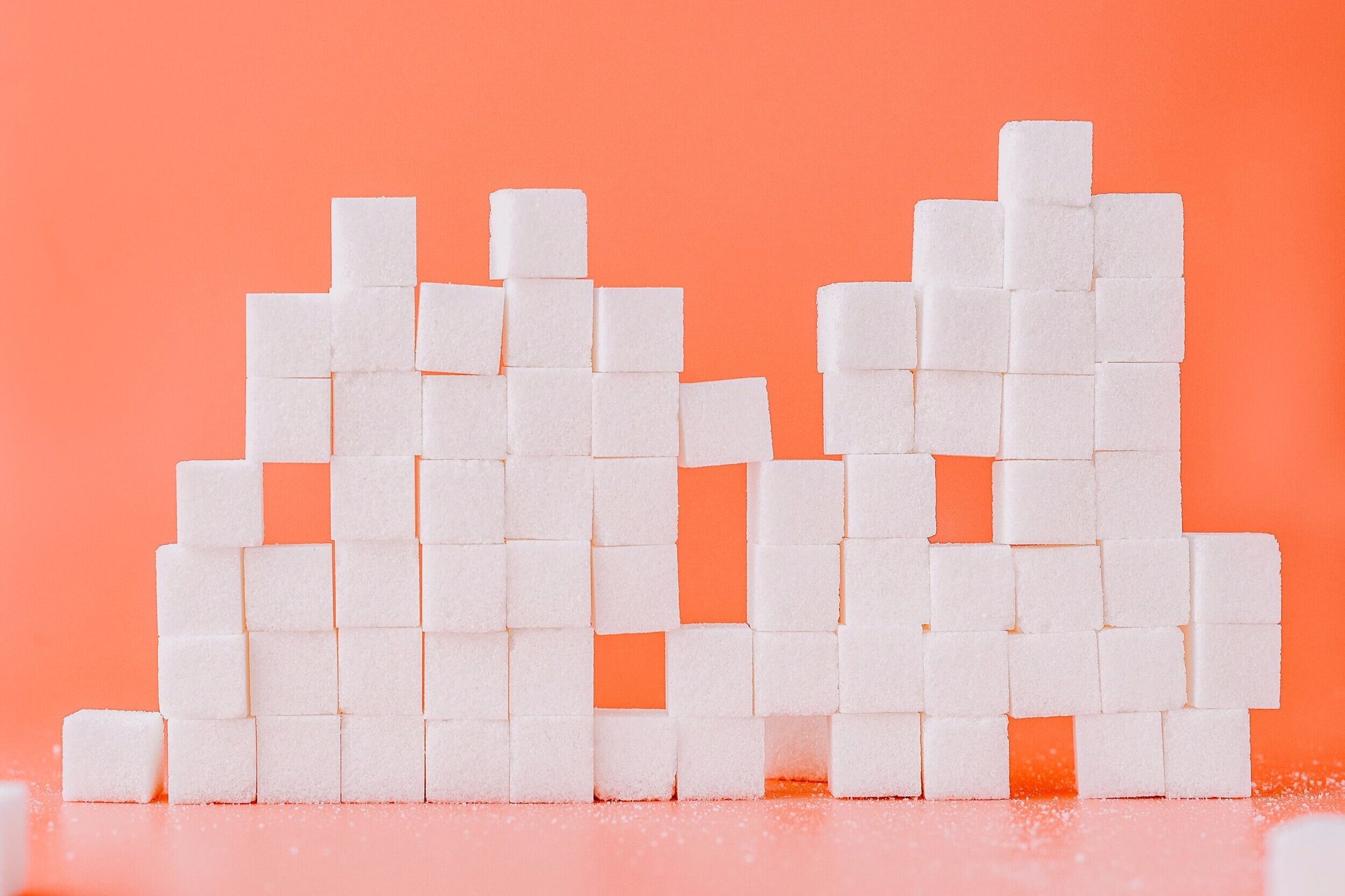Let's Talk About Sugar
You’re sweet, let’s talk!
It’s the super-villain of the modern diet: as addictive- supposedly- as some street drugs, loaded with calories and often hiding in plain sight… For those who haven’t guessed it (or read the title!) this week we talk about sugar: its role in flavour, health and some delicious alternatives!
In the past, cocktails & especially the non-alcoholic/ soft drinks market has been guilty of an over-reliance on the sweet stuff. Sugar releases opioids & dopamine, otherwise known as the “happy chemicals” and is therefore an easy shortcut to making something taste good! Happily, the range of low-sugar alcohol alternatives has grown exponentially; as has our understanding of the need to reduce consumption. But for those of you who haven’t tried an entirely “sugar free” espresso martini… (we don’t advise it!) it’s also true that sugar has an important role to play in the balance of flavour, and it is not always so simple as “cutting it out”.
Now we’ve established that sugar isn’t actually ‘the bad guy’ and that it’s fine to have some… (life is about balance!) But let’s look into what better options are available than refined sugar, below you will discover & learn about the delicious, natural sugars options we can use in our mindful cocktails: from common alternatives like honey & agave, to more exotic options like date molasses & monk-fruit.
Birch Sugar
Birch sugar (xylitol) is an easy substitute as the flavour is super close to classic refined sugar, but better for your health as it won’t spike your blood-sugar level. It is found in a variety of fruit & vegetables but only in miniscule amounts, which is why store-bought xylitol is known as a ‘synthetic’ sweetener. The most common sources are the bark of birch trees (hence the name) & corn-cobs, however you will find xylitol in just about anything with a cell wall- so all plants really! Known as a ‘tooth friendly’ sweetener, it staves harmful mouth bacteria & doesn’t promote cavities (woo-hoo!)
Honey
Raw honey also has comparable sweetness to white sugar & is deliciously varied, as the flavour changes according to which flowers were harvested! Acacia honey is light and mild, whilst heather honey will have a smoky element. Using local honey can also be beneficial for allergies, as the bees will have collected from native flora. Honey is known for its antibacterial, antiviral & anti-fungal superpowers! You will notice in some of our recipes that you can create your own flavours of honey, by infusing herbs & botanicals that add their own health benefits. Rosemary honey is one of our favourites!
Maple Syrup
As most of you will know already, maple is from the sap of the maple tree & comes in different grades according to when in the season it was harvested. The darker the syrup, the richer and heavier the flavour generally. It tastes about 40% less sweet than white sugar on average, is minimally processed & packed with even more antioxidants & minerals than honey: including manganese, riboflavin, zinc & magnesium. It is also lower in calorie than most sweeteners.
Stevia
Produced from the leaves of the stevia plant, Stevia gives a long-lasting sweetness that clings to your palate (awesome for mouth-feel!) and is 150x sweeter than sugar… so you should only need to use a quarter of the amount!
Agave
Produced from (you guessed it!) the agave plant. Bear in mind that the relative sweetness is higher than white sugar by about 50%, so you will need to use a lot less & make sure you use really good quality, unfiltered blue agave. Agave doesn’t offer nutritional additions like some of the alternatives listed but is nice to use for tequila-based cocktails as it comes from the same plant.
Monk Fruit
A small, round “Buddha” fruit grown in South Asia. It’s natural, contains 0 calories & is 100-250 times sweeter than sugar (so careful not to use too much of it!) Unlike most fruits, unique antioxidants called mogrosides generate its sweetness so monk fruit sweetener does not contain fructose or glucose!
Date Molasses
Like many of the alternatives on this list, date molasses is low on the glycaemic index; which is a great way to differentiate sugars as it won’t spike your blood sugar level. With an antioxidant level that’s the same as maca root & raspberries, this is by far the most nutritionally dense sweetener available featuring nutrients like magnesium, phosphorous & zinc. The potassium in date syrup even helps your body to slowly absorb & regulate sugar in the bloodstream.
Pomegranate molasses
The juice of the pomegranate fruit (with all of its associated benefits), boiled down to a thick syrup-like consistency. Technically not a sweetener but a condiment, you can make your own using unsweetened pomegranate juice, for a tart fruitiness that will bring depth of flavour to your mindful cocktails.
How to make a Syrup:
Homemade syrup is a great way to flavour your cocktails or soda(!) and to know exactly what’s in your glass!
We advise using exactly one part sweet to the same of “sour” (citrus fruit for instance), as an easy way to ensure your cocktail is balanced. This is called a 1:1 syrup & is made as follows:
1) Combine 1 cup* refined sugar with 1 cup water
2) Leave to dissolve naturally!
*The ratios are less clean when using alternatives as the perceived ‘sweetness’ varies between options. For instance, you would need far less stevia or monk fruit. Experimentation is your friend! Or if you’re following one of La Maison Wellness’ recipes we’ll have done the hard work for you!
There is tonnes of room for creativity: for instance, using tea instead of water or adding seasonal fruit stewed on the stove with the sugar.



